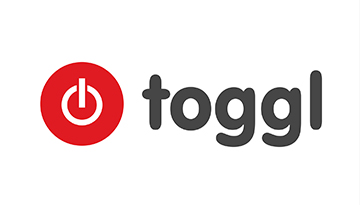Introducing Lawful Means of Employee Control
Yes, you can track and monitor your employees in a legal way. Here, we're presenting a few different options and strategies you can use, and sharing some best practices if you decide to monitor employees in such ways.
Whether your business is small, medium or a large enterprise, every organization needs to have a set of office and remote employee control mechanisms. Whatever the nature of control mechanism, they all have certain rules and best practices for successful application.
If you’re looking to track employees’ productivity, and gain more control over their work-related activities, there are some rules you must abide to.
Surveillance of employees in the workplace still seems to be a hot topic among managers, HR and labour lawyers. Thanks to the development of IT equipment which is used at work, the widespread use of social channels, as well as increasing level of gig jobs and teleworking, employers needed new techniques for controlling their workers.
Most countries allow employers to monitor employees to some extent. However, employees expect a certain amount of privacy in the workplace and would like to see their personal data is properly protected. So, employers’ rights are always limited by employees’ rights.
There are some basic rules of monitoring employees at work should follow then establishing policies for time tracking and employee monitoring:
- Monitoring must be related to the employer’s operations.
- The monitoring is allowed only to the extent necessary to protect the employer’s rightful interests, and any restriction of employees’ privacy must be proportionate.
- Employers must notify workers in advance of the possibility of monitoring.
- Personal data related through monitoring must be handled in accordance with the local and federal laws about data protection.
If you’ve already taken care of these steps, you must now think about which type of monitoring suits your company’s needs the best.
Most commonly, there are 5 different ways of technological employee monitoring which are combined so that employers can get the full picture of how employees spend their time and resources at work.
1. Monitoring Telephone Calls
If you provide mobile phones to your employees, you have the right to restrict or prohibit personal use of the phone, however, a small degree of personal use is usually accepted. You aren’t allowed to intercept calls, but you can take actions based on the data you collect from a tracking software which is installed on their phones (even if they weren’t aware of the tracker).
On the other hand, in the customer support industry, it’s completely legal to record and monitor phone calls coming in from customers. These recordings are usually made for quality control purposes, and in case that the customer needs to share bank account details, the recording is stopped.
2. Monitoring Email Correspondence
Business email addresses should be used for professional purposes, however, like with calls, a certain degree of personal use is accepted as long as it doesn’t interfere with business use. Employers are allowed to block sending or receiving emails to/from some addresses, and they can use filters to apply these rules.
Additionally, employers can access employees’ inboxes for monitoring purposes, if the employees were informed that such action might happen. Depending on the situation, it is advised that you give employees enough time to delete or archive any private data before you access their inbox.
You have the right to check the contents of messages which your employees sent or received, which are related to your business. But, if a message could be private, you don’t have the rights to access the contents of it.
3. Monitoring Internet Use
You’re free to set rules about internet usage in the workplace, including blocking or restricting access to certain websites.
These restrictions can be:
- Material - restricting access to certain websites, like gaming
- Volume-based - restricting the amount of data employees can download/upload
- Temporal - restricting website access during certain time frame
- You can also ban social media sites if necessary
You can control website access only if you’ve informed employees that his might happen. If employees are allowed to access sites which store private data (private email accounts, bank accounts, social media, etc.), you aren’t allowed to access this data.
As a general rule, you should train employees about the acceptable internet use, because careless use of internet can put the whole company at risk.
4. Monitoring Computer Usage
Another common way employers monitoring their employees is by using a computer monitoring and time tracking software. As a general rule, you are allowed to use this software, but in most countries you must notify employees before hand.
The software usually tracks the time your employees spent working in different apps, or browsing various websites on their computer. Some of them can even work in the background, without your employees knowledge. These are useful when you’re suspecting someone of malicious behaviour, and you must monitor their activities without them knowing.
Monitoring applications are a great way to tackle productivity issues, identify improvement areas and increase overall efficiency of your team. Additionally, if your employees have issues behaving accordingly when the manager’s are not in - the software should solve it.
5. GPS Tracking Devices
Another way you can monitor your employees is by using GPS devices in company-owned cars. You are free to use these devices while during working hours, if the tracking continues afterwards you would be breaking the law.
This type of monitoring is mostly useful in construction, delivery and other types of work which involves going out in the field.
Wrap Up
Setting up good policies and best practices for employee monitoring isn’t important only because of legal compliance. It shows your employees that you’re securing their privacy, and protecting their data.
In any case, you should remember that too much employee control, especially without prior notice, can create an untrustworthy atmosphere and trigger defense mechanisms in your employees. Which is why you should keep an open relationship with employees. Honesty, as well as balance between your company’s safety and employees’ satisfaction.
This article was written on September 28th, 2016 by Gina Ora. It was rewritten on November 25th, 2019 by Bojana Djordjevic.
¿Está listo para tomar el control total de su lugar de trabajo?
Pruebe la solución más sencilla hoy mismo...
Prueba Gratis.svg)





























%20(1).png)
.jpg)

.png)




.png)
%20(1)%20(1).png)
%20(1)%20(1).png)